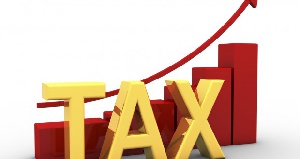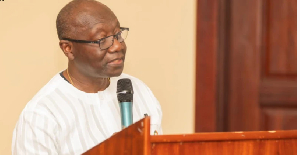Mr Raphael Godlove Ahenu, the Chief Executive Officer of Global Media Foundation (GLOMEF), an anti-corruption and human rights media non-governmental organisation, has appealed to traders and small-scale businesses to pay their rates, fees and taxes.
He said without the payment of taxes and rates, the government’s agenda to develop the country beyond aid could not be achieved.
Mr Ahenu said tax payment is a civic duty but mandatory; adding that until payers paid, the country cannot generate the required revenue to facilitate accelerated economic growth and national development.
Speaking at a tax forum in Sunyani on Thursday, organized by the Local Accountability Network (LANET) with support from the Ghana Anti-Corruption Coalition (GACC), Mr Ahenu, who is the local chair of LANET, said tax evasion is a serious offence punishable by law.
The LANET was formed by the GACC and its activities funded by Open Society Initiative for West Africa (OSIWA) is aimed at empowering the citizenry to play leading role in promoting accountability at the various Municipal and District Assemblies in their revenue utilization.
LANET also aims at building a partnership with well informed responsible citizens, institutions, societies, youth groups and market women in the fight against corruption to aid nation-building.
Mr Ahenu said the county’s physical infrastructural development could not progress if tax payers failed to pay their taxes because most of these projects were mostly funded with revenues generated at both local and national levels.
Hence, citizens must not see tax payment as a burden but rather contribute towards its collections and usage in their own interest.
Mr Ahenu advised taxpayers to develop interest, follow processes involved in awarding contracts and monitor project execution as well.
This, he said, would greatly ensure that public funds would be utilised judiciously, in addition to preventing the execution of shoddy works.
Business News of Saturday, 15 December 2018
Source: ghananewsagency.org













